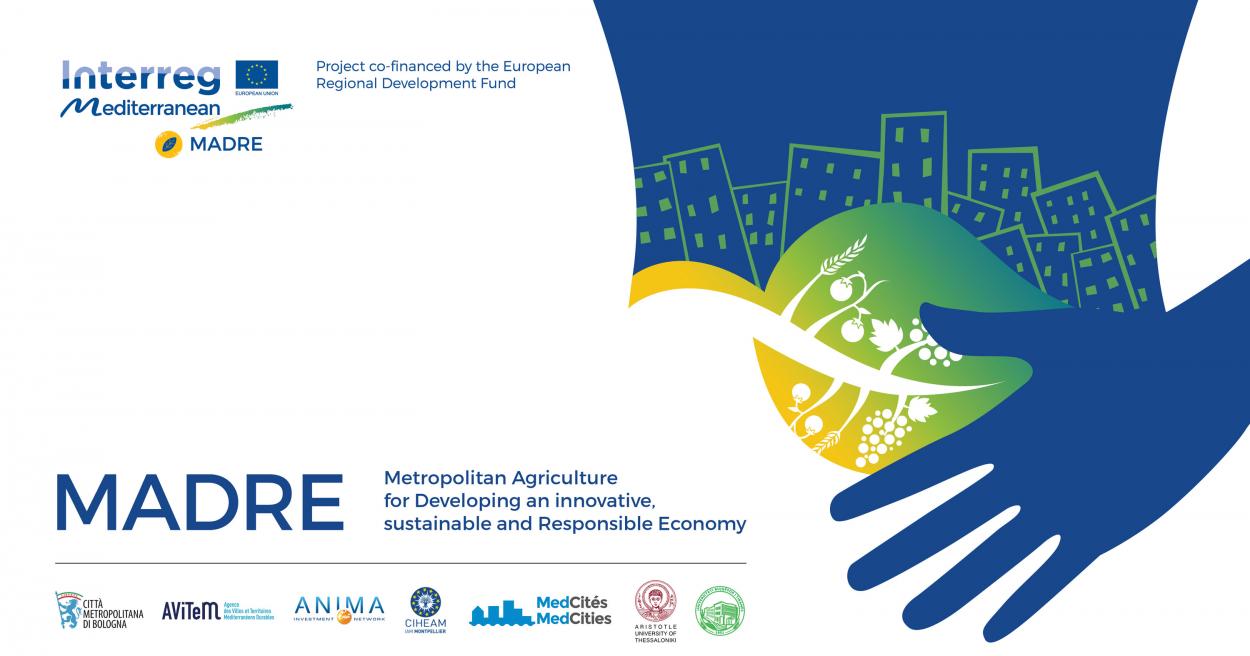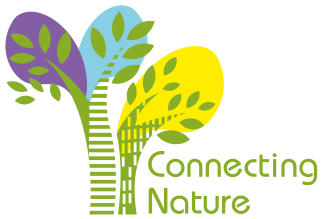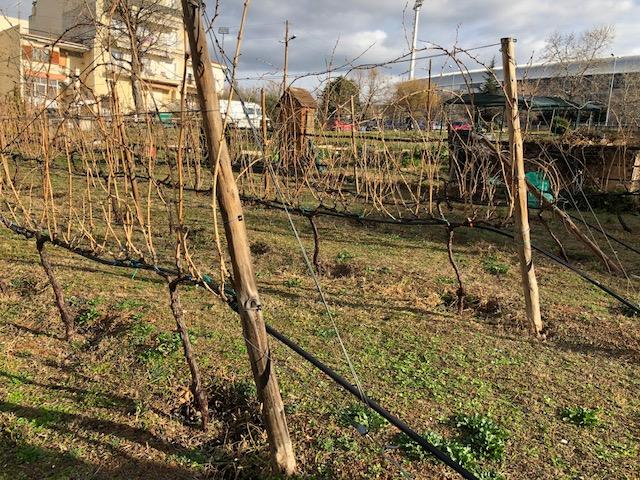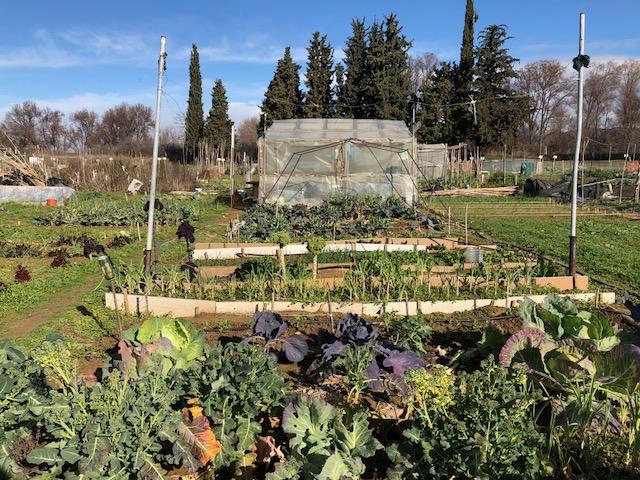
A profitable nature-based solution for cities
In the district of Sainte-Marthe (Marseille), 5 young architects and landscapers set up “Terre des mars” urban farm. In less than one hectare, about forty kinds of vegetables are cultivated without heavy mechanisation or chemicals. In the outskirts of Montpellier, the “Ferme Urbaine Collective de la Condamine” is a growing urban farm managed by young people which will preserve the land through the regeneration of abandoned hectares assigned by the municipality. In Bologna, urban gardens have an educational and social inclusion vocation since the ‘60s, while Villa Ghigi Park represents a great experience which allows the city to maintain the integrity of the land.
The Greek city of Thessaloniki hosts an urban vineyard, founded by the collaboration between the Municipality, local wine producers and the Viticulture Laboratory of the Agriculture Department-Aristotle University. Outside the city, the University manages a rural area of 760 hectares with a huge variety of plants and organises seminars on organic methods for citizens. In Badia del Valles (Barcelona), the agriculture experimentations of one urban orchard is linked to social housing and a strong social inclusion component.
These practices strengthen nature in cities, trying to balance urbanisation, the integrity of land and improve rural-urban links, despite an increase in urban dwellers. They decrease the gap between the city, nature and agriculture and enhance the environmental and sustainable management of land and water.
MADRE – Metropolitan Agriculture for Developing an innovative, sustainable and Responsible Economy – is a project co-financed by the Interreg MED Programme, which has collected these initiatives in the MADRE Best Practices Catalogue to set up a knowledge base of urban and peri-urban agriculture initiatives. The Catalogue contains a selection of them, all the initiatives will be published in the MADRE Digital Platform which will consolidate the resources of the project and will be a tool for future networking opportunities.
MADRE aims at paving the way for a transnational network of metropolitan and peri-urban agriculture (MPA) stakeholders, promoting agriculture as strategic asset of public policies. The project has the stakeholder engagement of the 6 flagship metropolitan areas involved – Barcelona, Marseille, Montpellier, Bologna, Thessaloniki and Tirana. At the core of these activities are more than 100 stakeholders who are farmers and SMEs dealing with agriculture, academia researchers, citizens and public authorities. All these stakeholders have been involved in discussing the 6 innovation thematic areas identified within MADRE through world cafè methodology and working groups: farmers’ innovation, consumers’ innovation, academia research, territorial innovation, social innovation and transnational innovation. Stakeholders analysed the constraints and needs of the topics and gave relevant inputs on how to build the network in the Mediterranean area.
The needs that emerged from the stakeholder point of view are: appropriate regulatory framework, access to land at affordable price, public support for pilot initiatives, sustainable water and waste management, protection of biodiversity. These seem to be the prerequisite to be supportive of a new urban agriculture and sustainable cities development.
The MPA becomes essential in the public policy agenda and for cities which should reach the Sustainable Development Goals (SDGs) of the 2030 Agenda for Sustainable Development. The design of a new urban agricultural planning, adapting cities to climate change by multi-functional landscape management and enhancing urban biodiversity, is what MADRE will boost thanks to the Policy Paper to be finalized by June 2018.
MADRE website madre.interreg-med.eu


